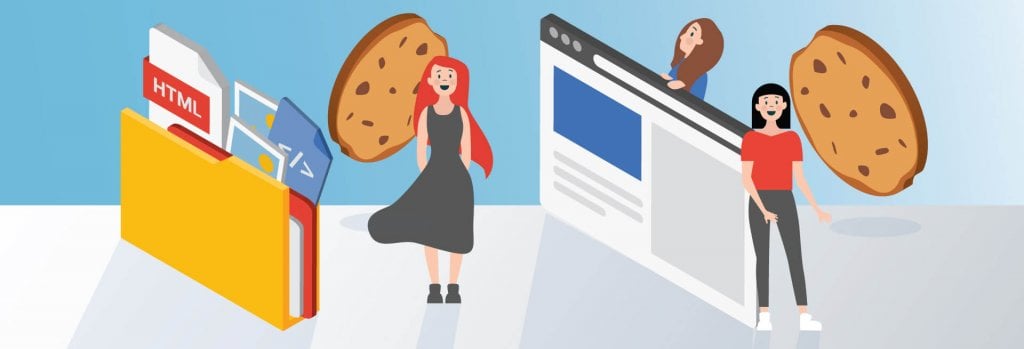Cookies vs Cache | Everything Publishers Should Know
In our recent article, we covered 7 types of internet cookies. Today, it’s time to dive deeper and explore the topic of cookies vs cache.
Cookies and cache are similar in that they store data on a visitor’s device. But are they the same? Keep on reading to find out!
What is a Cookie on the Internet?
Internet or web cookies are small text files stored on users’ devices. Cookies are designed to make users’ browsing experiences more personalized and save them time by storing information such as their site preferences or contents of their shopping basket.
They are also used by advertisers to match their messages with users’ interests.
Besides, cookies typically have a fixed life span, after which they expire.
What is a Cache?
A cache is a system (usually hardware or software) that can temporarily store data so that future requests for that data can be served faster. Caching happens either on a visitor’s side (aka browser cache) or on a server’s side (aka server cache). Both also help to decrease the website’s load time.
Browser Cache vs Server Cache
Browser cache speeds up the website for returning visitors. It can temporarily save the following types of content:
- HTML documents
- CSS stylesheet
- JavaScript (JS) scripts
- Images
- Multimedia content
Server cache speeds up the website for everyone, not just the returning users. Following the first-ever request to a webpage, the server caches the generated content and delivers the same information faster for every next visitor.
What is the Purpose of Browser Caching?
Each website contains static elements, such as a website logo, which don’t change from visit to visit. The browser cache stores these elements on a visitor’s local device, so when the same user returns to the website for the second or third time, these elements are already stored on his side (the browser cache).
Because there are fewer requests to make, browser caching can dramatically speed up your website and reduce bandwidth usage.
Note, publishers set the expiration date for these files manually. For example, you can choose to set an expiration date of 3 months for all your video files.
What is the Main Difference Between Cookies and Cache?
Cookies vs Cache
| Cookies | Cache | |
| 1. | Only store text-based information such as session and tracking data | Stores static files such as HTML, CSS, JS, images, videos, etc. |
| 2. | Sends information both to the browser and the server | Only sends information from the server to the local cache |
| 3. | Very small, on average 100-200 bytes | Depends, can reach hundreds of megabytes |
| 4. | Used for analytics, tracking, and personalization | Used to speed up your site |
| 5. | Help to identify users and can point to personally identifiable information | Treats all users the same* |
| 6. | Expire automatically but can also be deleted manually | Expire automatically but can also be deleted manually |
| 7. | Are sent with every request | Not sent with requests |
*However, there are methods of storing cookie-like information on clients’ cache to identify and persistently track users. The most popular type is evercookie (or supercookie).
Conclusion
Browser caching is a great overall solution for publishers, especially if page speed is a concern.
In contrast, cookies help to provide a better user experience by remembering information specific to your users, such as their website preferences or items in the shopping cart. They also help with tracking and site functionality.
The advantages of both cookies vs cache must be considered for your website.



